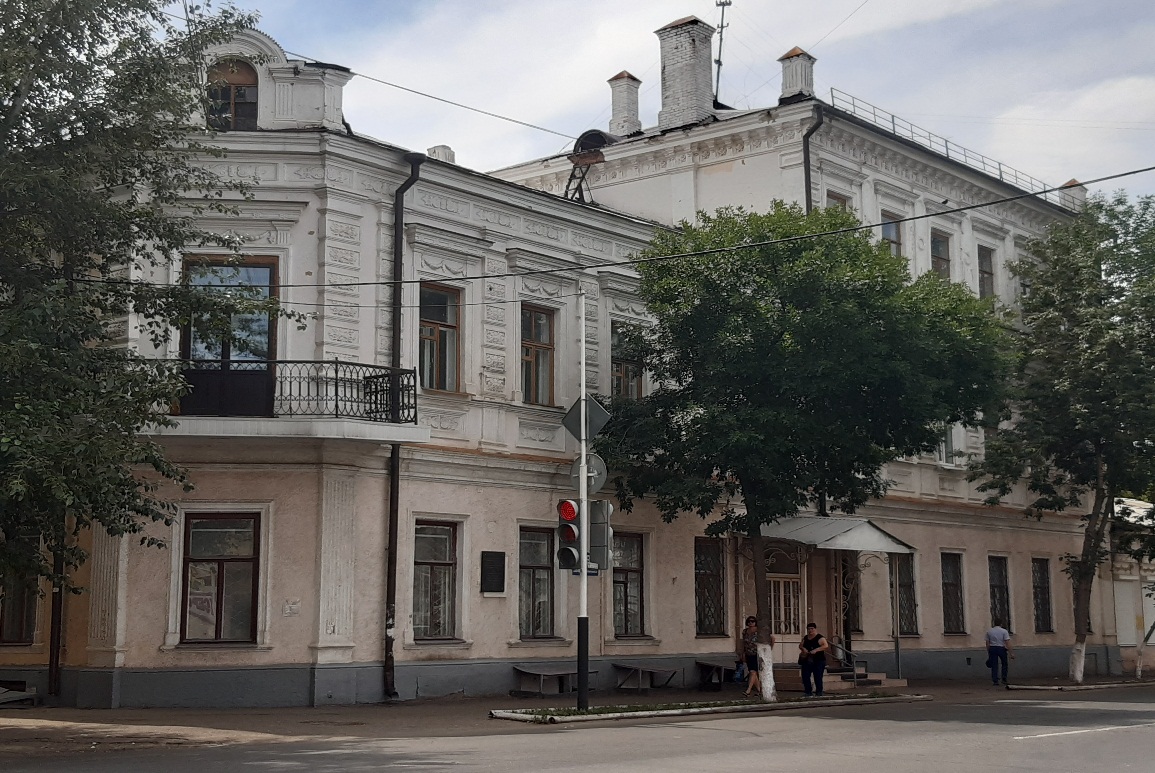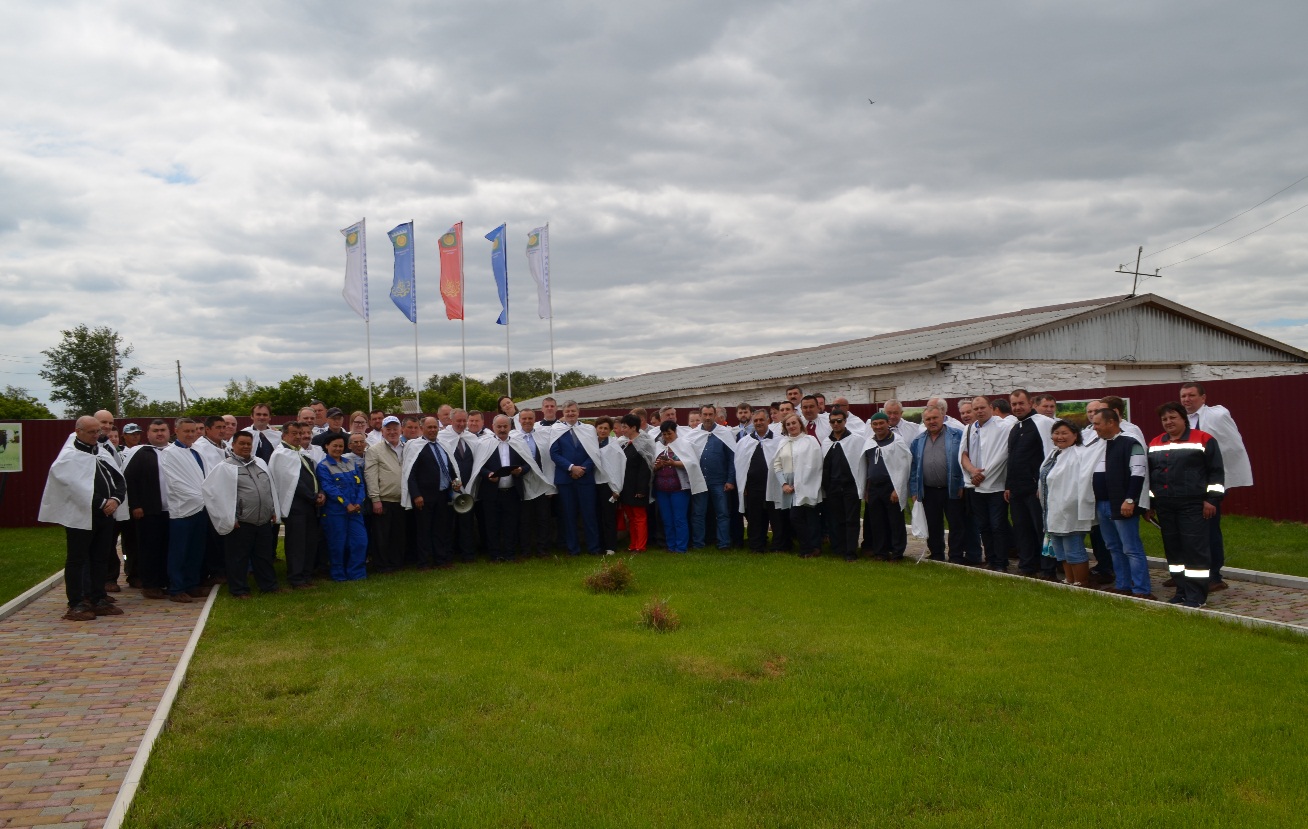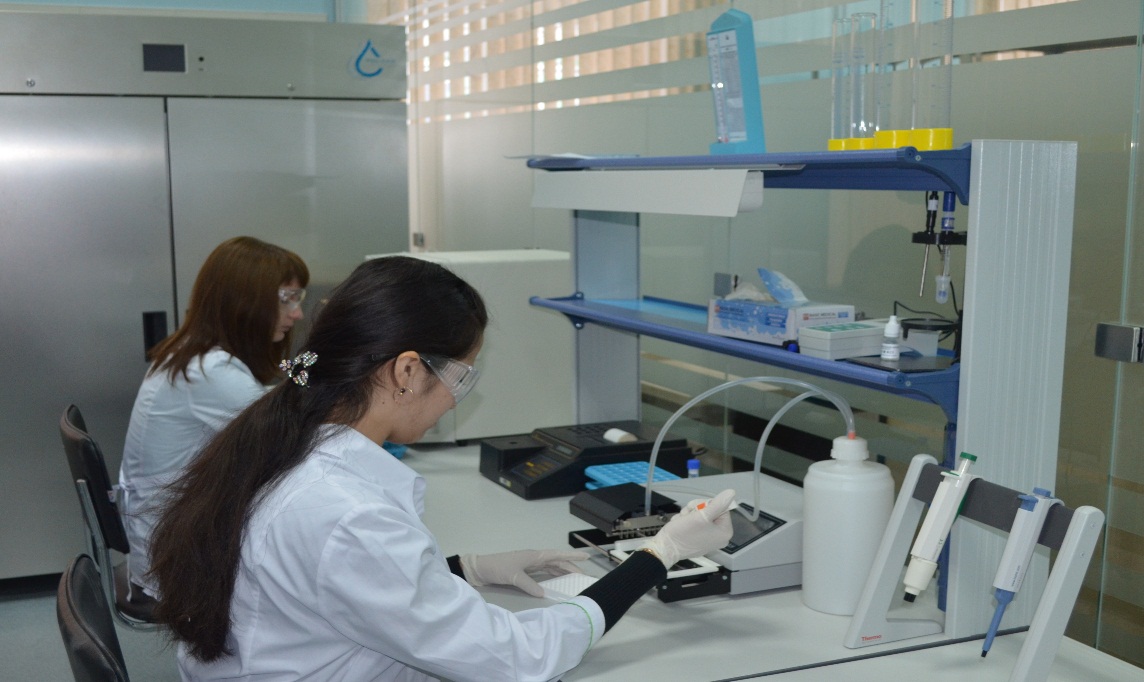Federal Research Centre of Bological Systems and Agro-technologies of Rusian Academy of Sciences
Federal Research Centre of Bological Systems and Agro-technologies of Rusian Academy of Sciences (hereinafter - FRC) has 90 years of experience in developing promising areas of plant and animal breeding and genetics, agrobiotechnology for agriculture and industry using modern physiological resources, nanotechnology and genetics.
For knowledge generation, the FRC conducts fundamental and exploratory researches aimed at developing new expert systems for assessing the commercial and breeding value of beef cattle, rationing nutrient, mineral, biologically active substances in animal diets, taking into account the effect on metabolism and microbiomes in order to use the genetic potential of modern breeds and crosses to maximum, to develop non-invasive technologies for early diagnosis and prevention of alimentary-dependent animal elementoses.

Scientists of the Centre are the originators of 12 breeds and intrabreed types of beef cattle in different climatic zones of the country; 48 varieties of cereal crops, 13 varieties of fodder crops and millet cultivated in 11 regions of Russia and the CIS countries (Republic of Kazakhstan). The total area of crops occupied by varieties created by the breeders of the Centre exceeds 1 million hectares. Employees of the FRC provide scientific support of the industry in 25 regions of the country, and specialists from 28 regions of Russia have used the services of the training center within the FRC.
Since 1973, the Centre has been the leading organization coordinating scientific research on beef cattle breeding in the country. Breeding work is carried out through breeding and genetic centres for breeds.
Based on the FRC, under the auspices of the Ministry of Agriculture of Russia and in collaboration with leading breeding enterprises of the country, head breeding centers for Kazakh white-headed, Hereford, Kalmyk, Angus breeds and National associations of various cattle breeders have been established.

The collaboration of the Federal Research Centre with international organizations is carried out in the framework of projects and programs.
Within the framework of the Canada Russia project, Canada-Russia Livestock Consulting Centre was established, it ensures the dissemination of new technologies in beef cattle breeding;
The French-Russian project aims to collaborate with the Institute of Animal Husbandry and the Institute of Microelements (UNESCO).
The Kazakh-Russian project improves the organization of breeding work with the use of immuno-biochemical methods of research, the introduction of DNA technology.
Cooperation with Mexico, Uzbekistan, and Tajikistan is carried out in the framework of scientific, technical and methodological cooperation on the problems of nanotechnology in animal husbandry and bioelementology.
Center staff members participate in international organizations: Federation of European Societies on Trace Elements and Minerals (FESTEM), United Nations Educational, Scientific and Cultural Organization (UNESCO), and editorial boards of foreign journals: “Trace Elements and Electrolytes” (Dustri Verlag, Germany) , "Journal of Trace Elements in Medicine and Biology" (Elsevier, Germany), Biological Trace Element Research (Springer, USA).
In 1931, a graduate school was established in the organization (accreditation. No. 2931, dated 10.31.18), a doctoral program is working (order of the Ministry of Education and Science). In 2019, the master's educational program is licensed (order of Rosobrnadzor No. 1295 of 09/11/19). Over the period of work, over 800 Doctors and Candidates of Sciences have been trained within the scientific schools of the Centre.
The Dissertation Council D 006.040.01 has functioned for the defense of doctoral and candidate theses since 1993 according to the following specialties: 02/06/08 - feed production, feeding of farm animals and feed technology (agricultural and biological sciences); 02/06/10 - private animal husbandry, technology for the production of livestock products (biological sciences).
Since 1931, the Centre publishes a theoretical and scientific-practical journal "Animal Husbandry and Fodder Production" (until 2018, "Herald of Beef Cattle Breeding"). The journal is included in the "List of peer-reviewed scientific publications where the main scientific results of theses for the degree of candidate of science, doctor of science should be published" (approved as of 01.12.2015, official website of the Higher Attestation Commission URL: https://vak.minobrnauki.gov.ru / main) according to the branches of sciences and groups of specialties: biological sciences: (06.02.08, 06.02.10), agricultural sciences: (06.02.08, 06.02.10), and is also included in the Russian citation index system (Agreement with RUNEB No. 177-08 / 2010 of 08/31/2010).
In 2015-2019, researchers worked on 19 grants of the RSF, the President of the Russian Federation, and the Russian Federal Property Fund. According to the decision of the Russian Science Foundation, a laboratory for Agroecology of Technogenic nanomaterials was created on the basis of the FRC, reorganized in 2016 into the Center for Nanotechnology in Agriculture.

The Centre’s staff includes: an academician of the Russian Academy of Sciences, 2 corresponding members of the Russian Academy of Sciences, 28 doctors of science, 62 candidates of sciences, 4 Honored Workers of Agriculture of the Russian Federation, 4 Honored Workers of Science of the Russian Federation, 2 HonoraryWorkers of education of the Russian Federation.